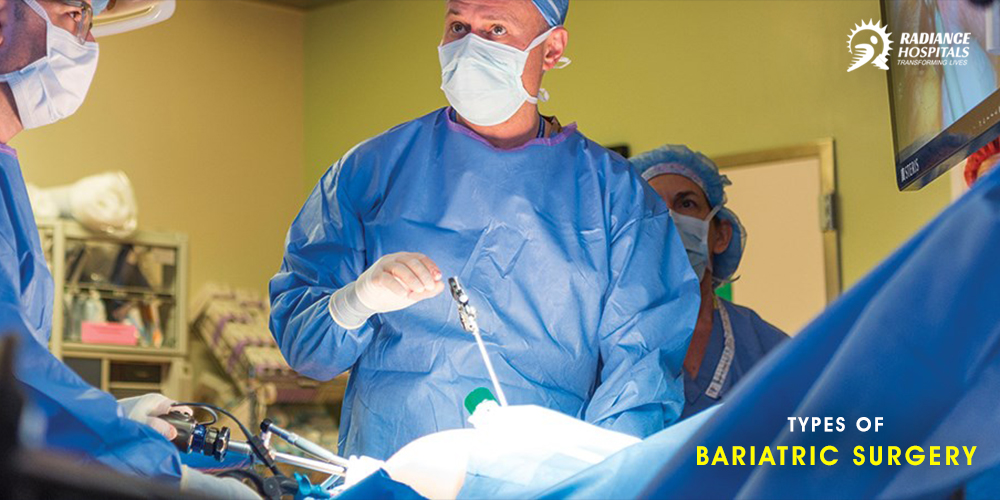


The types of bariatric surgery that may be best to assist a person to lose weight. You should converse with your doctor what type of surgery might be precise for you.
Open approach and Laparoscopic Surgery
Open surgery is a good option for people having a higher level of obesity. In open bariatric surgery, surgeons make a sole, big cut in the abdomen. More frequently, surgeons now use laparoscopic surgery, in which they make numerous small cuts and slot in thin surgical tools through the cuts. Surgeons also pop in a small scope attached to a camera that captures as well as projects required images onto a video monitor.
Laparoscopic surgery has less risk than open surgery causing fewer pains and scarring as compared to open surgery. Laparoscopic surgery even leads to a swift recovery.
What are the Surgical Alternatives?
There are four kinds of operations which are described below. Let’s discuss the types of bariatric surgery.
1. Laparoscopic Adjustable Gastric Band
In this sort of surgery, the surgeon places a ring with an inner inflatable band across the top of your stomach to generate a small pouch. This makes you feel complete after eating a smaller quantity of food. The band has a circular balloon within that is being packed with a salt solution. It is considered as the best bariatric surgery type.
The surgeon can fine-tune the size of the opening from the pouch to the stomach by putting or removing the solution by using a small device known as a port placed under your skin.
Subsequent to surgery, you will require follow-up visits to regulate the size of the band opening. If the band leads to troubles or is not enabling you to lose adequate weight, the surgeon may get rid of it.
2. Gastric Bypass
Gastric bypass surgery has two parts foremost the surgeon staples your stomach having a small pouch in the top section. The staples make your stomach small, so you eat fewer and feel packed sooner. It is one of the safest weight loss surgery.
Subsequently, the surgeon cuts your small intestine and links the lowermost part of it straight to the small stomach pouch. Food then bypasses the stomach and the high part of your small intestine so your body soaks up fewer calories.
The surgeon joins the bypassed fraction farther down to the lower part of the small intestine. This bypassed part is still linked to the major part of your stomach so that the digestive juices can move from the stomach and the foremost section into the lower section of small intestine. The bypass even alters gut hormones and gut bacteria that may affect the overall appetite and metabolism. Gastric bypass is tough to reverse, although a doctor may do it if medically crucial.
3. Gastric Sleeve
In gastric sleeve surgery, a surgeon takes out most of your stomach, leaving back a banana-shaped section that is closed with staples. It reduces food intake making you feel full sooner. Taking out a section of your stomach may even affect the gut hormones and gut bacteria that may affect body appetite and metabolism. The surgery cannot be reversed as some of the stomach is lastingly removed.
4. Duodenal Switch
This surgery is much more complicated than the others. The duodenal switch incorporates two breaks up surgeries. The foremost is similar to gastric sleeve surgery and the second one directs food to bypass the small intestine. The surgeon even attaches the bypassed part again to the last section of the small intestine, enabling digestive juices to blend with food.
This sort of surgery enables you to lose a larger amount of weight than the other three mentioned. But, this surgery is even the most likely to lead to surgery-related issues and lack of vitamins, minerals as well as the proteins in the body.
Moving Forward
Before the above surgeries, you need to meet with numerous health care providers, such as a bariatric surgeon, a dietitian, a psychiatrist, and a psychologist. These medical care providers will recommend you to turn out to be more active and have a healthy eating diet both before and after the surgery.
Comments